A quick word of introduction. My name is Stuart McDonald and this is Couchfish—the perfect tub of ice-cream for the traveller stranded on the couch. The newsletter has both a paid edition which traces a fantasy itinerary through Southeast Asia, and a free one that covers, well, everything else. You’re reading the latter here—but if you’d like to read the former, you can upgrade your subscription via the button below. Thanks!
It was 19 years ago last week that Sam and I launched Travelfish.org. In the years since, we’ve had some ok years, a few ace ones, some ordinary ones, and, more recently, some decidedly less than ordinary ones. So it goes—if nothing else, travel is always interesting.
Over those same 19 years, travel has changed somewhat. With that in mind, in no particular order, here are 19 thoughts for 19 years on things I’d do the same—or different—if I was starting Travelfish today. If you’re thinking of starting a travel website, you might find some of the following of interest.
“BETA” passport stamp from my passport that was stolen in Phnom Penh not long after. Fun times.
1. Wouldn’t accept freebies
This is probably the easiest one for me. Indeed, finding out how most travel publishing worked was one of the primary reasons we started the site in the first place. I’m irrationally stubborn on this point and while it immediately put us at a cost disadvantage, I wouldn’t do it any other way.
2. Wouldn’t have ads
I was late to this point of view. For years Travelfish was, at least in part, a programmatic-advertising support website. Getting rid of most of these was one of the best wholesale changes we made to the site. While I could write a PhD on the whys of this, in summary I’d say ads are (a) an awful reader experience, (b) a privacy nightmare, and (c) fuel a “writing for Google” approach to travel writing, writing stuff that will rank and get clicks rather than help the reader.12
3. Would have a paywall
When the ads went, the paywall came shortly after. Travelfish is now around 50% paywalled. Making this change saw a shift to writing what readers would think is worth paying for versus what might get a high-revenue ad impression. I believe this is a far better result for readers as we’re serving them—rather than advertisers. Pre-pandemic, Travelfish earned more through the paywall than it did through programmatic advertising, so to that extent, that’s enough proof for me.
4. Wouldn’t work with properties and/or tourism boards
This is perhaps a bit of inside baseball, but ties in with my first point about freebies. Complimentary stays from hotels and comped fam-trips through tourism boards, agencies and other related underlings, are a fab way to reduce one’s research costs. The downside, as far as I’m concerned, is tainted copy. My favourite way to summarise this is via a conversation I had many moons ago with the regional head of a Southeast Asian national tourism board. They’d got in touch regarding possibly working together, then when we met said that they required editorial control—essentially veto power—over anything we wrote. So Much No. Yes, it was a short meeting.
The 2008 look, back when the Cambodian islands were still “near deserted,” guess I wasn’t thinking of the residents.
5. Would use in-house copy only
In the beginning, all Travelfish copy was written by me and edited by Sam. As the business grew, so did the list of people writing for us. At one stage we had 17 freelance writers—an approach I don’t really recommend! The important thing was that if a reader read something on Travelfish, it was written either by me, or when we had them, one of our full-time writers, or by a writer I specifically contracted to write for us. Without dishing too hard on “influencers” if you’re reading Travelfish, you know what you’re going to get—and you’re not going to get a vacuous top ten whatever. For the reader, I think this matters.
6. Would hire more local writers
This ties in with the previous point. I never managed this well—over the years most—though not all—of our writers were Westerners based in Southeast Asia. To a point, I still think having an “outsider” view is an important one, but obsessing on this throws the baby out with the bathwater. There is no shortage of talented local writers who are perfectly capable of writing for an international audience.
7. I wouldn’t build my own website
When we started Travelfish, platforms like Wordpress etcetera were a shadow of the robust affairs they are now. I couldn’t find anything to do what I wanted, so I built my own. The learning curve was severe, and today, 19 years later, I’m still fixing and undoing self-made disasters. If I was starting afresh I would not, repeat not, build my own website from scratch. If there is one thing I’ve learned, this is it.
8. Would have a newsletter
To be honest, today I’d be pretty close to having only a newsletter. There’s a few significant advantages of this—including not needing to built a website—but also that a newsletter is easily the best way to build a direct relationship with readers. Many newsletter providers now support having a paid version, and this is a great opportunity for starting a travel-ish undertaking without having to invest massively—in time and/or money—to build a website.
9. Would write for me, but I’d better consider the needs of others
Anyone who knows me knows I walk my talk. A major driving force behind Travelfish was to build the sort of website that I wanted when I travelled. Over the years we strayed from this a bit, particularly in covering some more luxurious properties I’d most likely never stay at3, but the website’s roots have always been in the sort of travel that normal humans can afford. That said, not a stretch goes past where I don’t get an email asking after travel advice that doesn’t involve getting on a motorbike. Travelfish readers tend to skew older, and more often than not they get in touch asking me to cover car hire as well. As one reader memorably put it, “I may look like I was in Easy Rider, but I prefer the safety of cars thank you.”
2013: Oh poor Burma + Gadling was still a thing. Travel—ever-changing.
10. Would focus far less on accommodation
When you spend half a day looking at a dozen near-identical cookie-cutter hotels on a single Ho Chi Minh City laneway you question what you’re doing in life. Over the years, we’ve reviewed 8,688 resorts, hotels, guesthouses and homestays in Southeast Asia. No, that isn’t a typo. This madness must stop.
The accommodation scene has changed massively over the last twenty years. Not only are there now a bazillion properties, there’s also been an incredible commodification (McDonaldisation) of them, as hotels have become similar to the point they’re interchangeable. Spending days—or weeks—looking for the needles in the hay is a waste of money and the writers’ time.
While platforms like Agoda, Airbnb, Booking, and Expedia are very problematic for destinations (and the properties), they are the easiest way to filter the insane number of options. Use them, but only to a point. Pick what area you want to stay in, filter the reviews to nine out of ten, and lower the budget to what you can afford. Pick something from there and then contact the property direct. As a part and parcel of this, I’m dramatically reducing the number of properties we list. In some cases places have closed (due to natural attrition or the pandemic), but in others the places simply are not noteworthy. By the time I’m done, I expect to have removed at least half the properties we currently list.
11. Would treat food, and to a lesser extent, transport, in the same manner
Where are you? Are you hungry? Are you lazy? Open Google or Apple Maps, filter it to restaurants, top rated only, open now, by cuisine, then see what is within walking distance. As with hotels, getting on top of food in a traditional format, is, to my mind, a bit pointless. Somewhere truly outstanding? Yes, perhaps list it, but overall spend more time talking about what types of food are noteworthy in the destination, and why they are worth your attention.
With transport, is there a bus station? Where is it? Where do buses/trains/donkeys go? All this remains important information, and is worth providing to readers. Detailed timetables and costs? No. Most, though not all (yet), have this information online on their own sites. We’ll link to that.
12. Would concentrate more on how to do it best
To use accommodation as the example, the important question now isn’t “what hotel should I stay in?” so much as “where in X should I stay?” I would spend far more time addressing the latter rather than the former. Likewise for sightseeing, yes, it remains important to cover what there is to see, but the most important angle is perhaps the hows and whys rather than the whats. Putting readers in contact with quality local guides is an important bit of value adding, but likewise for those who prefer to travel unassisted, it is important to advise on how best to visit or experience whatever. Often this information can only really be gained if you’ve been there yourself, which, if it’s on Travelfish, we almost certainly have.
13. Would better explain the value of guides
Expanding on the guide comment in the previous point, for years, I was down on guides. I’d often considered government-trained guides to be garbage, better able to provide the guest with propaganda rather than true insight. In a large part this is still true—the guiding, particularly at “monuments of national importance” often remains woeful. Unfortunately government training of guides is often a mandatory part of becoming a licensed guide, which makes it all the more important to find good ones—even if unlicensed. Emphasising the consideration for local tour companies over foreign operators is another important aspect. Will be putting a good deal more effort in on this front going forward.
14. Would emphasise sustainable/responsible travel
With two decades of travel writing under my belt, I’m inexcusably late to this, and there is plenty of copy on Travelfish that highlights my shortcomings. When I watched the early stretch of this video interview with travel writer Adam Skolnick, he says, in talking of his nine years writing for Lonely Planet:
“One of the things I never ever once considered was my carbon footprint, I never once considered the environmental aspect of it, not one time, and I’m an environmentalist!”
I thought, yes, that is me. So, better late than never and all that. If I had to pick the single greatest shortfall in Travelfish, it is this—and it is something I’m working to address, both in reworking existing content and writing an entire new section of the website covering it. So in summary, if I was starting Travelfish today, the mental question “is this sustainable and/or responsible” would preface every sentence on the site. Yes, there is much rewriting to do!
2017: Burma, again. Sadly many got on boats—they had no choice.
15. Would ask “why” more often
Why? Why are you travelling? Why do you want to go here, stay there, eat this and drink that? These questions deserve far more thought from publications—along with the mirror statement “Why you should not go there.” For now, on Travelfish, only one of Cambodia’s armpits, Sihanoukville, gets this treatment, but again, more will. By thinking more about the why, then perhaps travellers, especially first-timers, will be better positioned to not contribute to problems in the first place.
16. Would have a “front and back of the book”
When you think of a legacy printed travel guide, traditionally the front of the book is dedicated to history, culture, society, environment and so on, while at the back there’s the nuts and bolts—visas, costs, language etcetera. In between the two there’s the meat of the sandwich. On Travelfish we have a few of the nuts and bolts and a good part of the meat, but little else. We fail at providing sufficient context, be is historical, cultural or whatever, to countries and destinations. We do supply some material around specific listings, but it is more the exception rather than the rule. This I would change. I’m not talking about a PhD length history on Thailand—Wikipedia does a decent job of that—but providing some context, particularly wrapped up in tourism, could better educate readers, help them travel in a better manner and get more out of their trip. Context is everything.
17. Would concentrate far more on the big picture stuff
This ties in with the previous point, but particularly with regard to broad-strokes travel planning. We have some great sample itineraries, and some awful ones— the bad ones are in the process of being re-written, but there is also plenty of scope to zoom in, why do we have a suggested itinerary on spending two weeks in a country but few examples of telling people how they can stay another day in a specific destination. For all my talking about a need for slowing down and smelling the coffee, it would be a great help to readers if we gave some suggestions on how exactly to do so. Again, this is in process.
18. Would talk more about impacts
To write about the changes a location has seen, both the benefits tourism may have brought, and also the considerable costs that came with it, provides important context to the traveller. By this I mean anything from participating in a beach clean-up to staying at a locally-owned homestay or a community based tourism scheme instead of a foreign-owned resort. What simple steps can visitors undertake to better contribute through their actions or their wallets? By answering this question, readers are better able to educate themselves around the reasons why they should or shouldn’t be doing something—or going somewhere. Travellers need to have the needs and desires of local people built into their awareness, through this, their impact—even of a single visitor—could be better managed.
19. Would never use AI
Travelfish will forever remain 100% free of the taint of AI—you’re going to be stuck with human intelligence sorry.
19 years on and still swinging.
I was down the beach walking my dog the other day when I met a Jordanian family. It was their first full day of their first ever trip to Bali, and it would be fair to say, they were loving it. Standing there with ear-to-ear smiles as their kids frolicked in the waves, they told me they’d never been anywhere like it. For jaded and grumpy me, their take was both eyeopening and refreshing.
For many, travel remains a profoundly enjoyable experience rather than a depressing grind, and it is important to keep this in mind when writing about destinations. Through the implementation of some of the above points, the family may have even bigger smiles, and locals could have a cleaner beach for those same waves to wash in on.
Back to our regular programming tomorrow—thanks for reading!
Couchfish is 100 per cent independent and reader-supported. If you’re not already a subscriber, and you’d like to show your support, become a paying subscriber today for just US$7 per month—you can find out more about Couchfish here—or simply share this story with a friend.
Don’t forget, you can find the free podcasts on Apple, Pocket Casts and Spotify as well as right here on Couchfish.
There are still some GetYourGuide listings on the site, but they are almost all specifically chosen by me. Those not selected by me will be nixed shortly.
There is still plenty of affiliate listings on the site, mostly for Agoda, but none are programmatic.
As part of the-mass deletion, most of the lux joints are being deleted from Travelfish. Sorry.

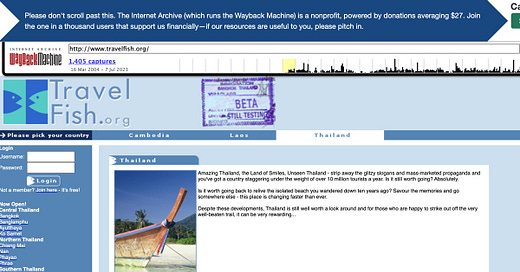


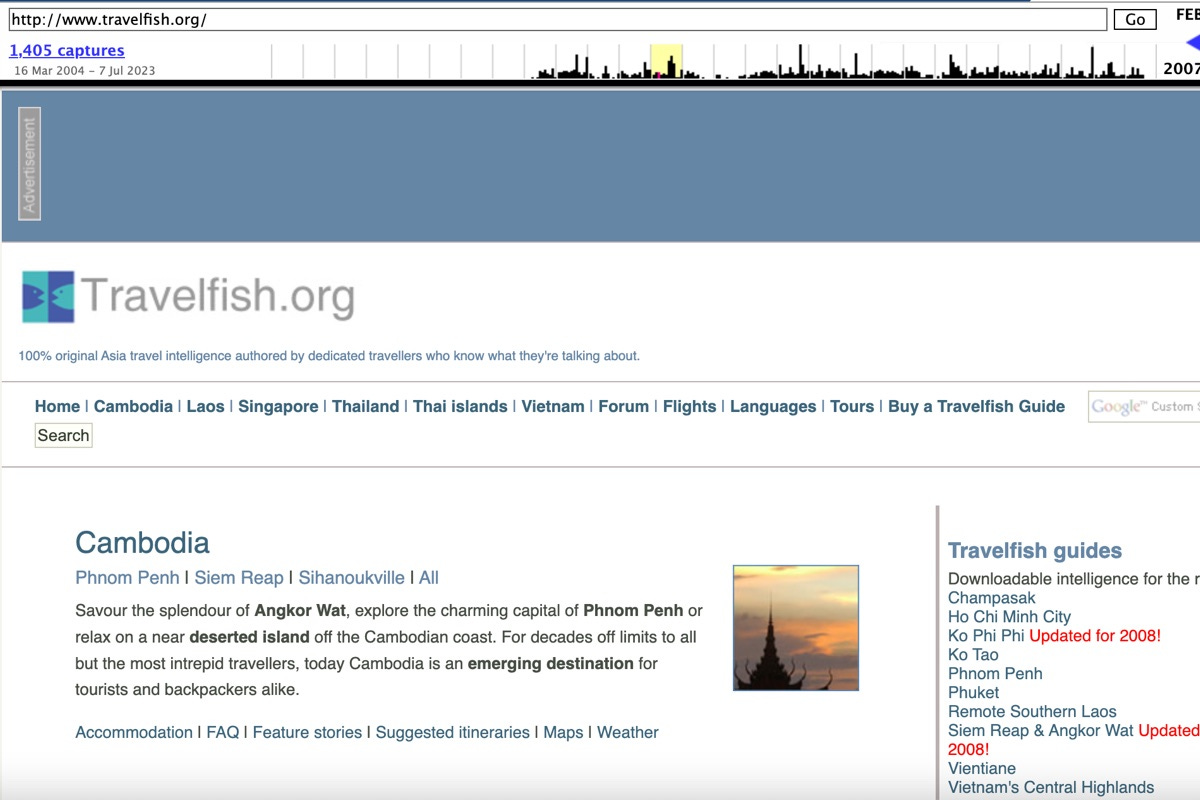
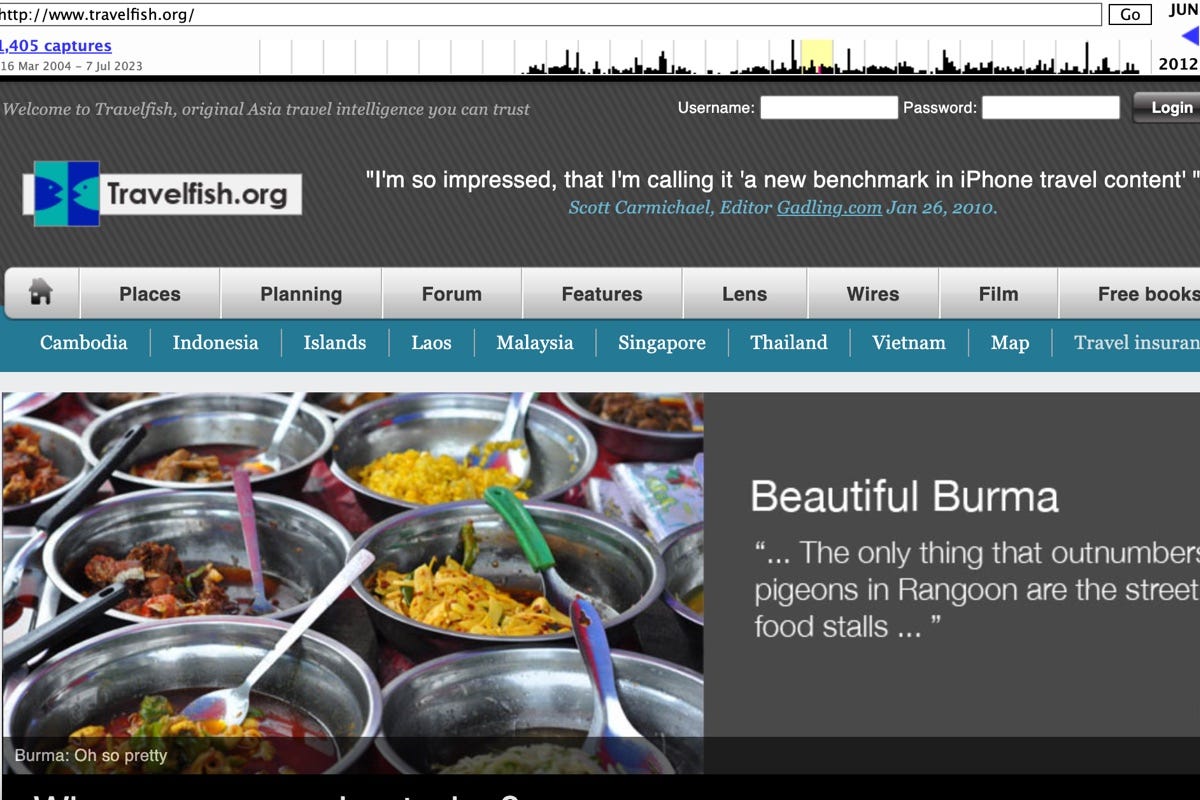
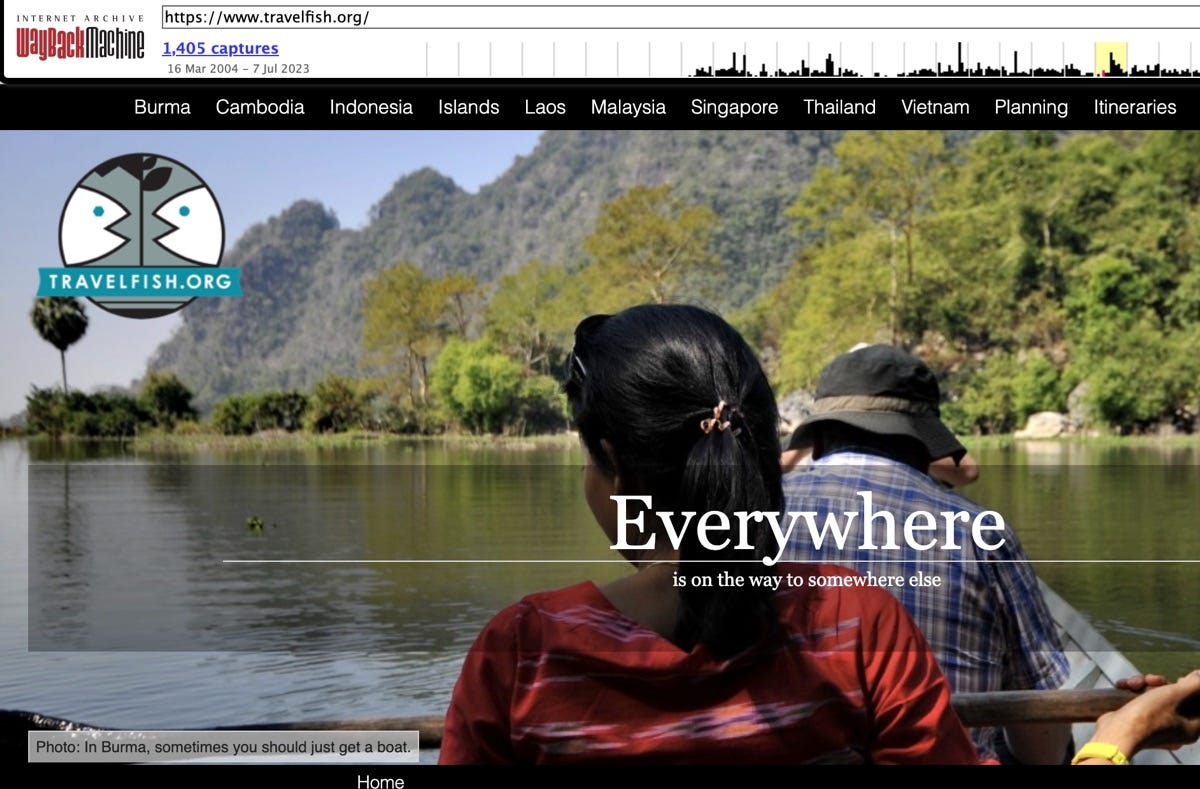
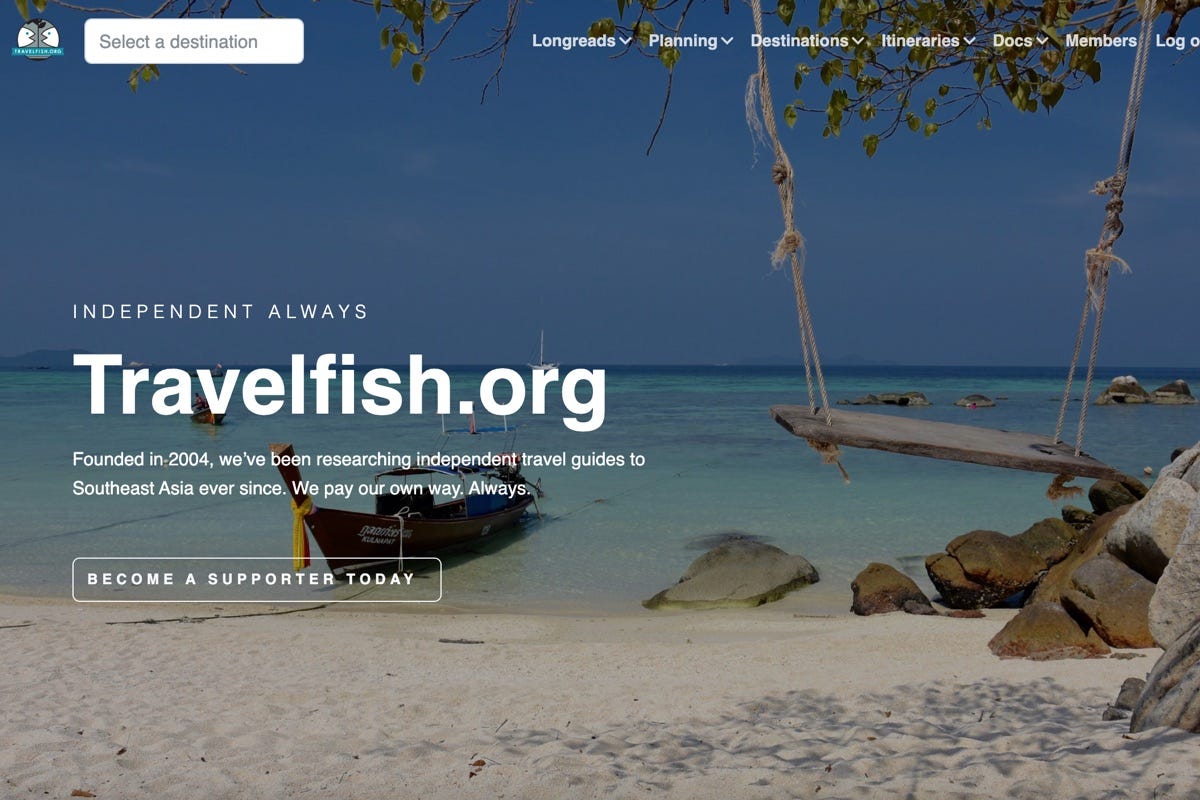


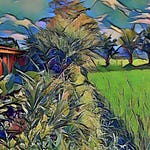

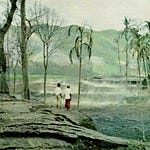

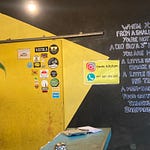
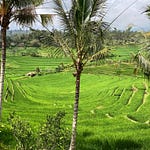

Share this post